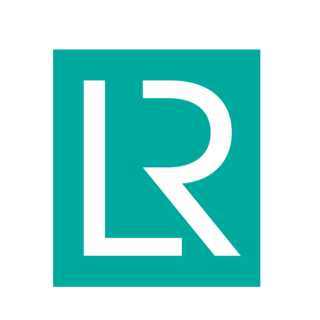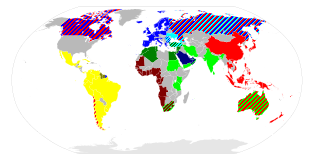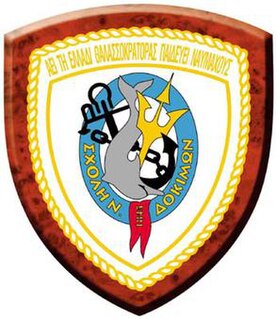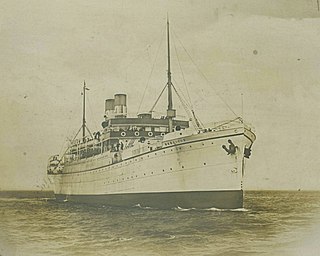Hellenic Register of Shipping (HRS)
Ελληνικός Νηογνώμων  |
| Type | Non-governmental International Organization |
|---|
| Industry | Maritime and Shipping |
|---|
| Genre | Classification Society |
|---|
| Founded | 1919 |
|---|
| Headquarters | , |
|---|
Number of locations | 19 offices in Greece, 5 in other countries |
|---|
| Services | Classification
Surveys |
|---|
Number of employees | 120 |
|---|
| Website | www.hrs.gr |
|---|
Hellenic Register of Shipping was founded in 1919 and is active in the industry inspections and certifications of facilities and equipment as well as the Certification of Management Systems. HRS is an international NGO -non-governmental International Organization-, dedicated to the safeguarding of both life and property at sea, the prevention of marine pollution and lastly the quality assurance in the industry.
The Hellenic Register of Shipping monitors about 5,500 passenger ships and issue the general protocol inspection, as well as several large yachts, which are covered by International Conventions (SOLAS, LL. MARPOL, etc.) or the European Directive 98/18, where the Greek classification society certify class, which is mandatory for ships heading for each one.
Specifically in the Industry operates as either an accredited and authorized organizations with public authorities as an independent or third-party organization (in cases where the conditions for works contracts).

Flag of convenience (FOC) is a business practice whereby a ship's owners register a merchant ship in a ship register of a country other than that of the ship's owners, and the ship flies the civil ensign of that country, called the flag state. The term is often used pejoratively, and although common, the practice is sometimes regarded as contentious. Each merchant ship is required by international law to be registered in a registry created by a country, and a ship is subject to the laws of that country, which are used also if the ship is involved in a case under admiralty law. A ship's owners may elect to register a ship in a foreign country which enables it to avoid the regulations of the owners' country which may, for example, have stricter safety standards. They may also select a jurisdiction to reduce operating costs, avoiding higher taxes in the owners' country and bypassing laws that protect the wages and working conditions of mariners. The term "flag of convenience" has been used since the 1950s. A registry which does not have a nationality or residency requirement for ship registration is often described as an open registry. Panama, for example, offers the advantages of easier registration and the ability to employ cheaper foreign labour. Furthermore, the foreign owners pay no income taxes.

Lloyd's Register Group Limited (LR) is a technical and professional services organisation and a maritime classification society, wholly owned by the Lloyd’s Register Foundation, a UK charity dedicated to research and education in science and engineering. The organisation dates to 1760. Its stated aims are to enhance the safety of life, property, and the environment, by helping its clients to improve the safety and performance of complex projects, supply chains and critical infrastructure.

RINA is a private, multinational company headquartered in Genoa, Italy. It was founded in 1861 under the name Registro Italiano Navale.

Australian Maritime Safety Authority (AMSA) is an Australian statutory authority responsible for the regulation and safety oversight of Australia's shipping fleet and management of Australia's international maritime obligations. The authority has jurisdiction over Australia's exclusive economic zone which covers an area of 11,000,000 square kilometres (4,200,000 sq mi). AMSA maintains Australia's shipping registries: the general and the international shipping registers.

The International Register of Shipping or IS was established in 1993, and is an independent classification society which provides classification, certification, verification and advisory services. The International Register of Shipping also offers consulting services well suited for the shipping and offshore industry.
A ship classification society or ship classification organisation is a non-governmental organization that establishes and maintains technical standards for the construction and operation of ships and offshore structures. Classification societies certify that the construction of a vessel comply with relevant standards and carry out regular surveys in service to ensure continuing compliance with the standards. Currently, more than 50 organizations describe their activities as including marine classification, twelve of which are members of the International Association of Classification Societies.
Nippon Kaiji Kyokai is a ship classification society. It is also known by the brand name “ClassNK” or often in the industry as just “NK”. ClassNK is a non-profitable non-governmental organization dedicated to ensure the safety of life and property at sea, and the prevention of pollution of the marine environment.
The flag state of a merchant vessel is the jurisdiction under whose laws the vessel is registered or licensed, and is deemed the nationality of the vessel. A merchant vessel must be registered and can only be registered in one jurisdiction, but may change the register in which it is registered. The flag state has the authority and responsibility to enforce regulations over vessels registered under its flag, including those relating to inspection, certification, and issuance of safety and pollution prevention documents. As a ship operates under the laws of its flag state, these laws are applicable if the ship is involved in an admiralty case.

Port state control (PSC) is an inspection regime for countries to inspect foreign-registered ships in port other than those of the flag state and take action against ships that are not in compliance. Inspectors for PSC are called PSC officers (PSCOs), and are required to investigate compliance with the requirements of international conventions, such as SOLAS, MARPOL, STCW, and the MLC. Inspections can involve checking that the vessel is manned and operated in compliance with applicable international law, and verifying the competency of the ship's master and officers, and the ship's condition and equipment.

The Hellenic Naval Cadets Academy is a military university and has the responsibility to educate and suitably train competent Naval Officers for the Hellenic Navy. Founded in 1845, the academy is one of the oldest educational institutions in Greece.

Japanese used vehicle exporting is a grey market international trade involving the export of used cars and other vehicles from Japan to other markets around the world since the 1980s.
Indian Register of Shipping (IRClass) is an internationally recognised, independent ship classification society, founded in India in 1975. It is a public limited company incorporated under Section 25 of the Indian Companies Act 1956. It is a Non-Profit organisation, Public undertaking and a member of the 11 member International Association of Classification Societies (IACS). It was inducted into IACS along with Croatian Register of Shipping (CRS) and Polish Register of Shipping (PRS).
The port of Hong Kong is a deep water port located in southern China. It is one of the hub ports serving the South-East and East Asia region, and is a gateway to mainland China. The city of Hong Kong began as a colony of the United Kingdom. It was a free port, and became an international trade center connecting land and sea transport between China and other countries. The port has mature infrastructure and well-developed air-sea-land transport. It helps Hong Kong maintain its position on international trade centre and transshipment hub.
The Russian Maritime Register of Shipping (RS) maintains a ship register of the Russian Federation, based in Saint Petersburg, and is a marine classification society. Its activities aim to enhance safety of navigation, safety of life at sea, security of ships, safe carriage of cargo, environmental safety of ships, prevention of pollution from ships, and performance of authorisations issued by maritime administrations and customers.

SS Arthur M. Huddell is a Liberty ship built in the United States during World War II. She was named after Arthur M. Huddell, an American union leader. Huddell had been president of the Boston Central Labor Union, vice president of the International Engineers’ Union, and president of the International Union of Operating Engineers (IUOE).

The Maritime Labour Convention (MLC) is an International Labour Organization convention, number 186, established in 2006 as the fourth pillar of international maritime law and embodies "all up-to-date standards of existing international maritime labour Conventions and Recommendations, as well as the fundamental principles to be found in other international labour Conventions". The other "pillars are the SOLAS, STCW and MARPOL. The treaties applies to all ships entering the harbours of parties to the treaty, as well as to all ships flying the flag of state party.
Ship Management - as the name implies, deals with the management of ships. The vessels under management could be owned by a sister concern of the ship management company or by independent vessel owners. A vessel owning company that generally has several vessels in its fleet, entrusts the fleet management to a single or multiple ship management companies. Ship management is often entrusted to third parties due to the various hassles that are involved in managing a ship. For instance, ships could be considered as large factories that travel across seas under various weather conditions for several days at a stretch. These vessels are equipped with several types of machinery that require appropriate maintenance and the associated spares on board. In the scenario of a vessel lacking adequate maintenance, this could lead to the breakdown of the equipment in the middle of a voyage at sea. A breakdown could be an expensive affair. A second scenario would be – a vessel is continuously on the move or under some sort of activity and hence requires to be manned by a competent crew. The documents of the crew need to comply with international regulations, their transportation to and from the vessel must be arranged for, their competencies must align with the requirement of the vessel and must complement the skillsets of the existing onboard crew. Hence several parameters must be considered which is a tedious job. In order to ensure such scenarios are considered for and to provide adequate attention to the vessels, ship owners outsource the management. Several management companies provide the owner with a crew on board. When the ship comes out of the shipyard the management company takes it over providing technical management to the owner. Most Management companies also offer other services like inspection prior to purchase, supervision during building, crew management and supply and ship lay-up solutions.

The South African Maritime Safety Authority (SAMSA) is a South African government agency established on 1 April 1998 as a result of the 1998 South African Maritime Safety Authority Act 5. as such it is responsible for the implementation of current International & National Regulations regarding the Maritime Industry as well as upon all recreational marine vessels within its jurisdiction.
Vessel safety surveys are inspections of the structure and equipment of a vessel to assess the condition of the surveyed items and check that they comply with legal or classification society requirements for insurance and registration. They may occur at any time when there is reason to suspect that the condition has changed significantly since the previous survey, and the first survey is generally during construction or before first registration. The criteria for acceptance are defined by the licensing or registration authority for a variety of equipment vital to the safe operation of the vessel, such as safety equipment, lifting equipment, hull structure, static stability, ground tackle, propulsion machinery, auxiliary machinery, etc. The SOLAS Convention, specifies safety equipment for commercial vessels operating internationally.

SS Themistocles was a Greek passenger steamship that was built in England in 1907 as Moraitis, renamed Themistocles in 1908, and scrapped in Italy in 1933. She was built to be a transatlantic ocean liner, but she served also as a troop ship.












